Could there be a Greek debt deal?published at 11:02 BST 1 July 2015
 Duncan Weldon
Duncan Weldon
Economics correspondent in Athens
Occasional updates and analysis from the Newsnight team
 Duncan Weldon
Duncan Weldon
Economics correspondent in Athens
 Laura Kuenssberg
Laura Kuenssberg
Newsnight Chief Correspondent
At long last, the Airports Commission has published its work. To almost no ones surprise its recommendation was another runway at Heathrow but leaving the potential option of expansion at Gatwick.
What is also quite possible is that it will, to the ongoing annoyance of the business community who fear the UK falling behind, never get built.
That's what the London Mayor has said this morning. That's what some members of the cabinet would also oppose and indeed, David Cameron would have to perform a u-turn of monumental proportions to go for it.
Given those barriers it is quite feasible that the fate of the runway will be decided not by the current government but the next - Labour could support it, but it might well become one of the defining issues of a race to succeed David Cameron - watch not just what Boris Johnson says today but also, the Chancellor George Osborne.
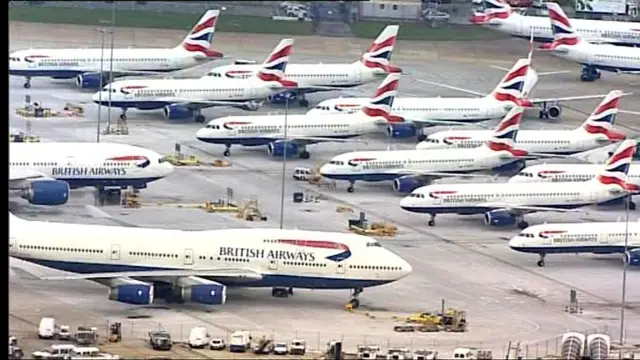 Image source, BBC TV News
Image source, BBC TV NewsHeathrow airport
Wednesday 1st July
Stories today include the possibility of a Greek debt deal, and political reaction to the Airports Commission report.
Jess Brammar, Newsnight producer in Athens
Jess Brammar, Newsnight producer
Robert Morgan, Assistant Editor, Newsnight
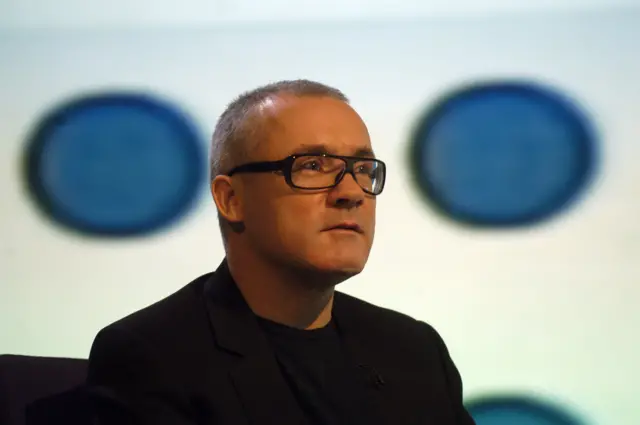
Damien Hirst on Newsnight Review
Artist Damien Hirst has turned gallery owner. His new London gallery will open in October with a show of paintings by John Hoyland, the British abstract artist who objected to the Royal Academy’s 1997 Sensation exhibition of works by Young British Artists.Damien Hirst, has described the artist as "the greatest British abstract painter". He added:"John Hoyland was never afraid to push the boundaries. His paintings always feel like a massive celebration of life to me.”
As well as the Hoyland works, Hirst will have his large personal art collection on show in his new gallery as part of future exhibitions. These include works by Picasso, Francis Bacon, Tracey Emin, Richard Hamilton, and Banksy. He will also show taxidermy works and anatomical models.
Ahead of the opening of a major retrospective of his career at Tate Modern in 2012 the artist Damien Hirst talked to Newsnight's Jeremy Paxman. You can view it below. Some people might find some of the images disturbing. There is strong language from the start.
Allow YouTube content?
This article contains content provided by Google YouTube. We ask for your permission before anything is loaded, as they may be using cookies and other technologies. You may want to read Google’s cookie policy, external and privacy policy, external before accepting. To view this content choose ‘accept and continue’.
 Duncan Weldon
Duncan Weldon
Economics correspondent in Athens
Richard Watson, Newsnight correspondent
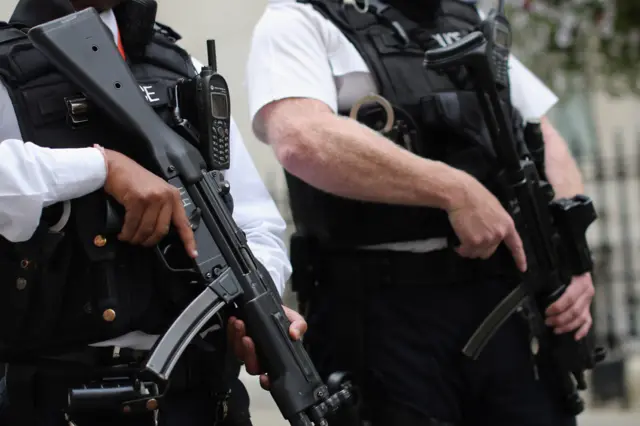 Image source, Getty Images
Image source, Getty ImagesAccording to one well-placed source, around 2,000 traveled from UK to join IS?
A senior counter-terrorism source has told me that the numbers of Muslims living in Britain -citizens and residents - travelling to Syria and Iraq to join extremist groups is being vastly underestimated. Officially, around 700 people are said to have gone out to fight with about half having returned to the UK. But my source says the true number is around 2,000 - almost three times the official estimate.
This is a single source - albeit well-placed - and therefore this number has to be treated with some caution. However, the clear message is that the scale of the problem is being understated. I was also told that one in five - 20% - of those returning to the UK pose a serious threat to national security. And that around 50 have died in Syria and Iraq. So, even on the official figure of about 700 travelling to fight, that’s around 70 already back in the UK who pose a serious threat.
But if my source’s information is correct - and about half of the 2,000 have returned - that would add up to around 200 people assessed as a serious threat. I put the 2,000 figure to an official counter-terrorism source but was told they’re unwilling to comment on numbers beyond saying that the official figure of around 700 figure is current. However, the official told me that to a certain degree it depends on who you include. In other words (and this is my interpretation) there might be a short and long list - a list of those the agencies are convinced have traveled to fight and a longer list of those they strongly suspect have gone to fight.
The overall message from my source, who is well-placed to make this judgment, is that the problem of British muslims signing-up to the self-styled Islamic State’s twisted vision of Islam and the Caliphate is far worse than even the official picture.
 Duncan Weldon
Duncan Weldon
Economics correspondent
Jess Brammar, Newsnight producer in Athens
 Duncan Weldon
Duncan Weldon
Economics correspondent in Athens
Today's the day that Greece is expected to miss a payment to the IMF, becoming the first European country to do so. Technically it would be "falling into arrears" rather than default, but that's semantics. This would be a big step.
But the talk right now in Athens is of a last minute deal. Of course we've been here before. Many times. It still may not happen.
The only deal that I can see working would for the Greeks to accept last Friday's offer from the creditors in return for a firm pledge of some sort of debt write down further down the line, subject to compliance.
Debt for reform has long been the only clear compromise. A deal is still do-able, but it would be a tough political sell on both sides.
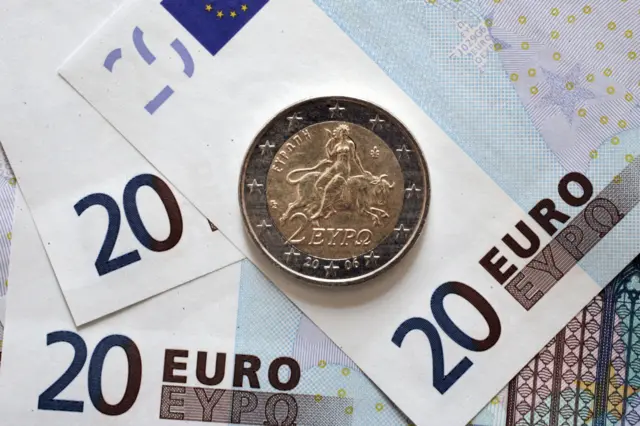 Image source, Getty Images
Image source, Getty ImagesGreek Euro coin and notes
Tuesday 30th June
Stories today include Greece's debt repayment deadline is tonight and critically injured British tourists return following the Tunisian terror attack.
What does the state do to our incomes?
 Chris Cook
Chris Cook
Newsnight Policy Editor
I've blogged, over on my page, about what taxes, spending and benefits do to income and inequality.
And Thomas the Tank Engine.
 Laura Kuenssberg
Laura Kuenssberg
Newsnight Chief Correspondent
 Duncan Weldon
Duncan Weldon
Economics correspondent in Athens
On Sunday Greeks are due to vote yes or no. But yes or no to what? For the no campaigners this is a rejection of austerity, for the yes side it's about Euro membership.
Here then is the actual question:
I'm not entirely sure that's the best way to frame this. The real issue is the forced choice the Greeks need to answer: what do you value more being anti-austerity or being in the Euro?
But that question isn't being posed.
 Duncan Weldon
Duncan Weldon
Economics correspondent in Athens
 Duncan Weldon
Duncan Weldon
Economics correspondent in Athens
This morning in Athens the queues at the ATMs were smaller but only because most of them where out of cash. As they got refilled over the day, the queues returned. I've met people who have spent the morning travelling from ATM to ATM, trying to get their daily €60.
The divide today is between those worried about the how they'll get their cash out of the banks and those who, after 5 years of crisis, have nothing to take out anyway.
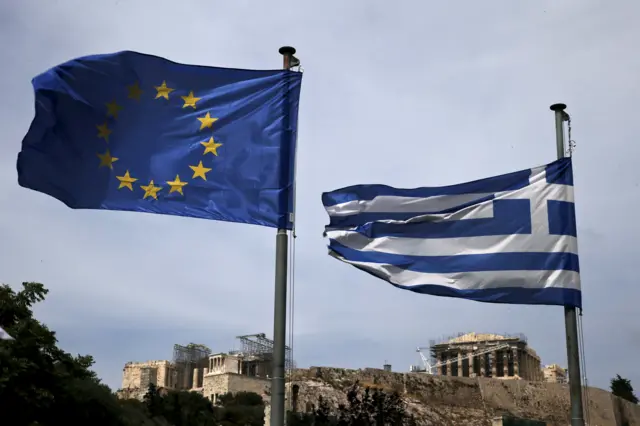 Image source, Reuters
Image source, Reuters Emily Maitlis
Emily Maitlis
Newsnight Presenter
By any stretch of the imagination it is a surreal way to begin a Monday morning. By 8am I am installed in the Sofitel at Heathrow Terminal 5 listening to the Dalai Lama describe the childhood moment he was crouching down to do a poo in his Tibetan village when he was scared off by a camel.
It is the moment I realise the next hour is going to be quite good fun. Because the Dalai Lama - for all his 80 years- has retained an infectious laugh and a sense of the ridiculous. A man who hates formality and who punches me on the arm as he says goodbye.
"Oww". I say " I thought you lot were in to non-violence". And he bursts into giggles again. But for those of you expecting a Buddhist love in, it's not. We tackle fairly uncomfortable territory - whether he feels he's done enough for the Tibetan people, why he mistrusts the practice of Shugden Buddhism, what he thinks of China and Richard Gere and assisted dying and climate change.
And there is a moment of true religious enlightenment. I ask him on behalf of Bradford City football fans whether he still supports the team. I tell him their fortunes improved tenfold since his blessing. "Oh it worked did it." He says. " well that makes me very happy. You never know with blessings. They're funny things".
You can see the full interview next Monday 6th July on Newsnight to celebrate his 80th birthday.
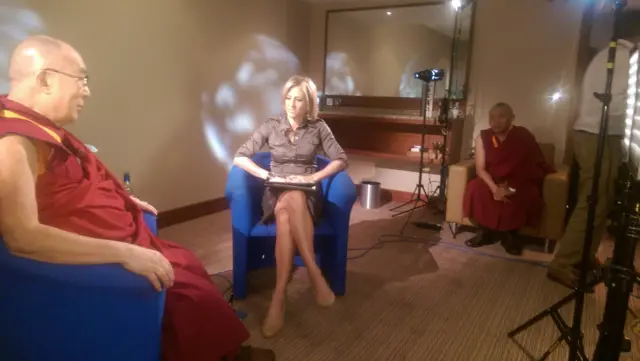 Image source, Marc Williams
Image source, Marc WilliamsEmily Maitlis interviewing the Dalai Lama today
 Laura Kuenssberg
Laura Kuenssberg
Newsnight Chief Correspondent
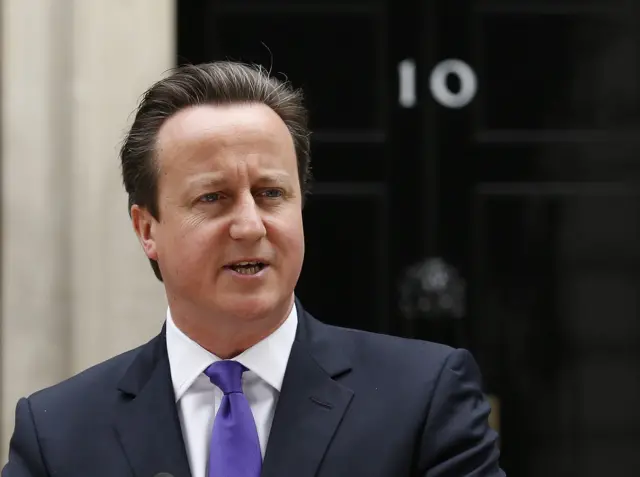 Image source, Reuters
Image source, ReutersAfter an event of such magnitude as the killings of British people, unawares, defenceless on the beach, calls as ever go up, "something must be done". It is intolerable for us to imagine that there is nothing our 21st century society can do to fix the situation, make the horror go away.
The Prime Minister this morning tried to provide part of that "something" with a new phrase, if not a new concept, a "full spectrum response".
Likening the battle with IS or ISIL as he prefers to the fight against Communism it seems clear what he does not mean, British troops in large number going to their strongholds.
What it already means though is British police and experts travelling to Tunisia in increasing number. Support to build up rival forces in Iraq who are fighting the jihadis.
Here it will also mean here bringing forward ideas to stop young Britons being lured by the idea of extremism, proposals that were in the Conservative manifesto that will now be speeded through. And it may mean, as Labour now appears to support, additional powers for the security services, controversial but more politically palatable this morning.
But there is a truth, as the Foreign Secretary acknowledged yesterday, however full the "spectrum" of our response, it has limits. The threats we face are many, the organisation of ISIL and those who it influences are so far removed from anything like a traditional army, that even the best and most intense efforts of a sophisticated western government can never completely stamp them out. However loud we cry "something must be done", pretending that is not the case is no help at all.
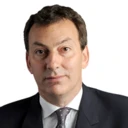 Mark Urban
Mark Urban
Newsnight Defence and Diplomatic Editor
The Prime Minister's promise of a "full spectrum" response to the Tunisian and other recent terror attacks is not new thinking but reflects a long held view that the response to violence must be comprehensive in its approach. It eschews the tabloid palliative of the "send in the SAS" and acknowledges the need to look at a broad range of activities ranging from immigration controls, security precautions, and support to foreign governments to battling militant ideology.
In truth though there is an air of resignation among many dealing with counter-terrorism that now al Qaeda and ISIS have inspired violence with their messages of hate, there is little that can be done, in many circumstances, to stop those who would perpetrate murder. Friday's attack in France, like the murder of Lee Rigby in London was executed with a car and a knife.
Even when somebody sympathising with extremist beliefs is able to obtain a military firearm like Seifeddine Rezgui in Tunisia, he may fit few of the other tell tale parameters of radicalisation that the police and intelligence agencies look out for. Not only had Rezgui not travelled to Syria, he had never even left Tunisia nor shown any obvious signs of a drift to ideological extremes.
Some in the Whitehall machine fear that with each new attack, there is a further dispersion of Britain's limited means - sending troops to Algeria, Mali, or Iraq in small numbers for example - when it is far from clear what short term training programmes can do to boost local security. Instead these appear like piecemeal responses to short term crises.
At heart almost everyone involved in crafting these policies in western countries knows that the fight within Islam is for the defeat of extremist theology is the key one, and it is a battle from which they are largely excluded.
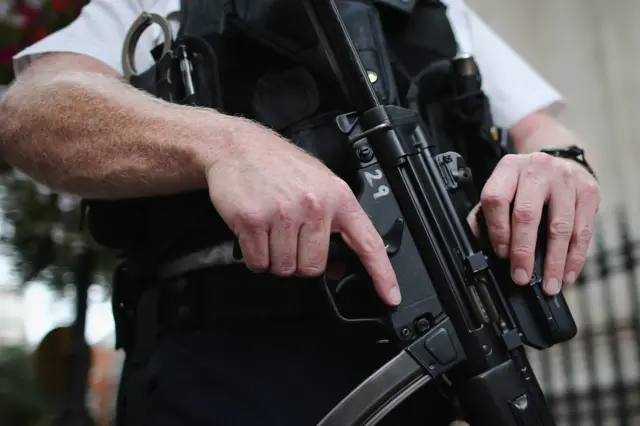 Image source, Getty Images
Image source, Getty Images